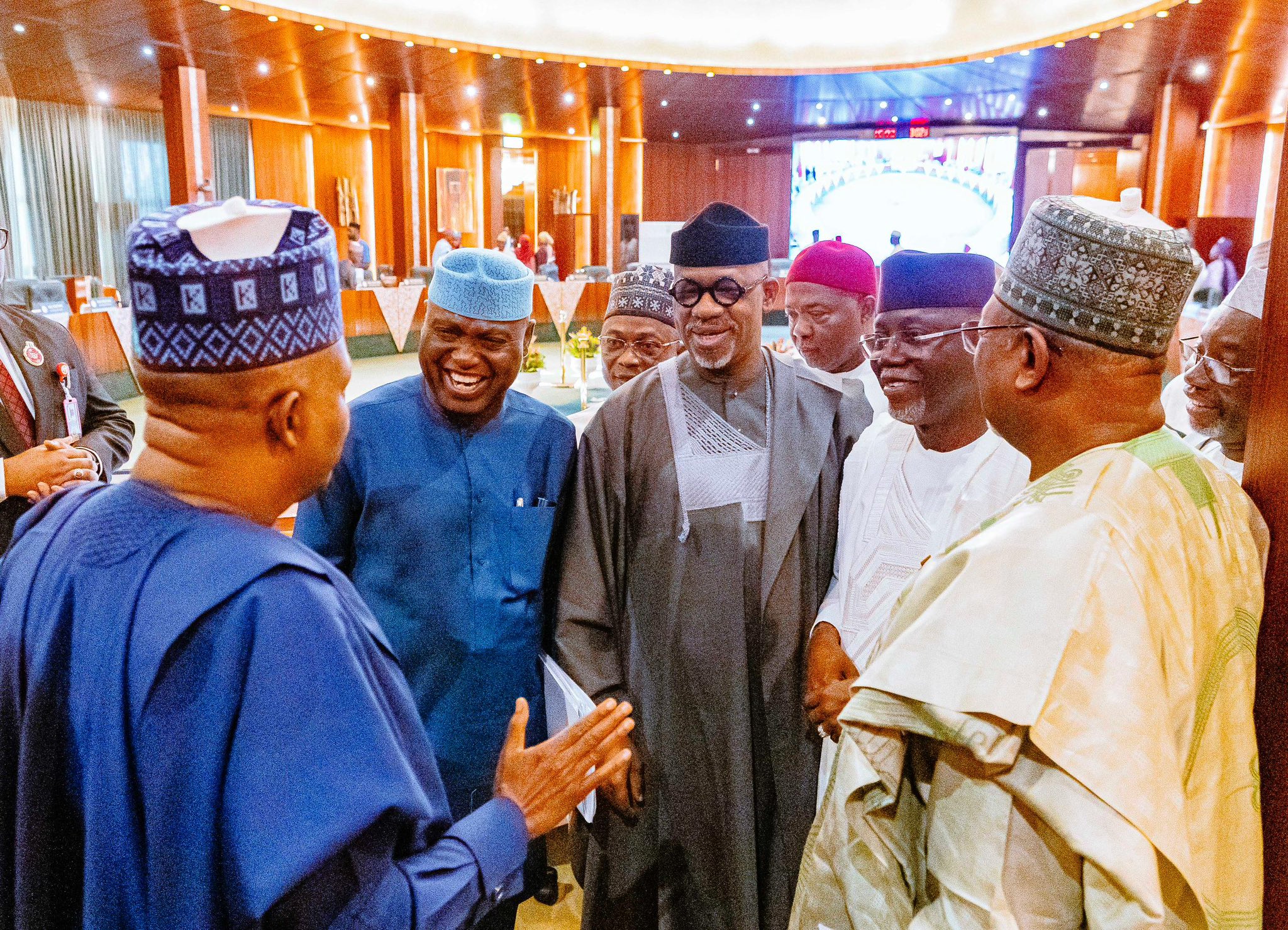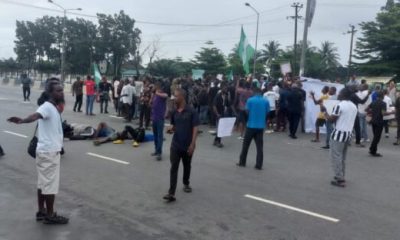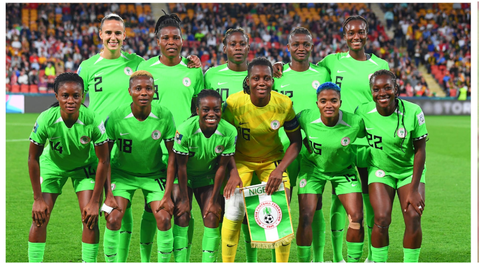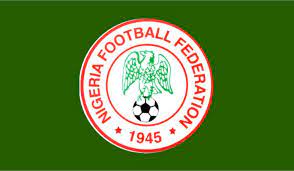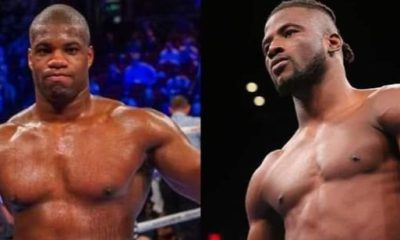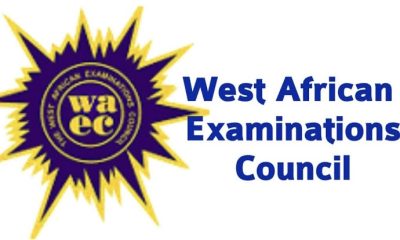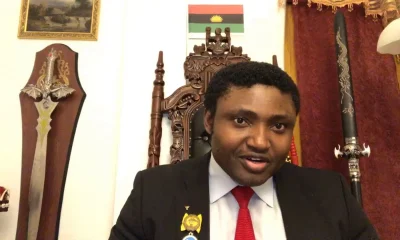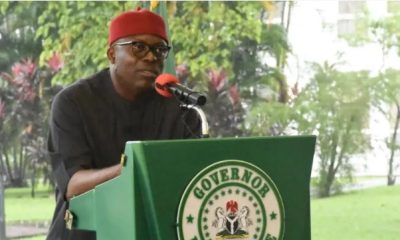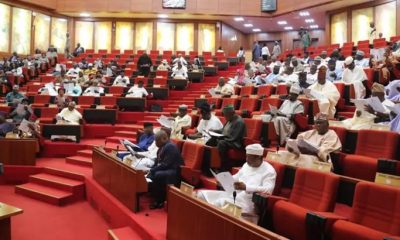A Federal High Court in Abuja has ordered the freezing of 32 bank accounts belonging to individuals and companies linked to the recent #EndBadGovernance protest.
The order, issued by Justice Emeka Nweze, is pending the outcome of the police investigation and prosecution of the case.
Justice Nweze issued the order while ruling on an ex-parte motion filed and arguing for the Inspector General of Police (IGP), Ibrahim Mohammed.
The police force alleged that the accounts were used to promote criminal conspiracy, terrorism financing, treasonable felonies, cyberbullying, and cyberstalking.
Nweze then ordered the banks to apprehend the account holders or any person transacting business on the said accounts.
He ordered the banks to contact the Nigeria Police Force through the telephone numbers: 08035179870 and 07032449912 as soon as any arrest was made.
“The banks are hereby directed by this honourable court to issue details of the account package(s) and to place a Post-No-Debit (PND) on the accounts, disable the ATM while allowing inflow into the said accounts as from the date of this court order,” Justice Nwite said.
Listed as respondents in the case, marked: FHC/ABJ/CS/1219/2024, are PA.LIN.HO Global Service Ltd, Innocent Angel Lovet Chinyere Nkiru, Obidient Movement Multipurpose Cooperative Society, Innocent Angel Lovet, Great Communicators Champion Multipurpose Cooperative Society Ltd.
Others are Great Communicators Champion Multipurpose Cooperative Society Ltd, Opaluwa Eleojo Bob-Simon, NUEE State Chapter, Adeyemi Abiodun Abayomi, Adaramoye Michael Tobiloba, and Popoola Festus.
The affected accounts include 4010073491 (Fidelity Bank), 1255130019 (Access Bank), 0006084167 (Abbey Mortgage Multipurpose Bank Plc), 0821931299 (FCMB), 1012007655 (FCMB), 0000575573 (A AG Mortgage Bank Plc), 1007871587 (UBA), 2037117333 (UBA), 5421031104 (ECOBANK ) and 0024541201 (Union Bank).
Others are 1022899050 (UBA), 8755008491 (Branch International Services Ltd), 5630208636 (Fidelity), and 4936992542 (Fairmoney Microfinance Bank).
Also included are 8755008499 (Branch International Financial Services Ltd), 2088228208 (UBA), 2115678044 (Zenith Bank), 3041823452 (First Bank), 1011828445 (New Edge Finance), 3024402748 (Fusrt Bank), 0161502459 (GTBank) and 0040580047 (Access Bank),
They also include 0250291788 (Wema Bank), 6112464260 (Branch International Financial Services Ltd), 1000774097 (Sparkle Microfinance Bank Ltd), 3434649965 (Fair money Microfinance Bank), 2013556714 (KUDA Microfinance Bank), 3104962864 (Polaris Bank), 6112464267 (Branch International Finance Services Lit), 8137051249 (OPAY) and 8137051249 (PALMPAY).
Mohammed, in moving the motion, stated that the accounts listed in the schedule for which relief is sought are under investigation and are reasonably suspected of containing proceeds from illegal activities or fraud.
“If there is any dealing with the account by way of withdrawal or transfer to another account by the persons under investigation/investigator and the persons that have absolute power to deal with the account will render nugatory any consequential order(s) which the court may make at the conclusion of this application.” Mohammed said.
He stated that the accounts are used to promote the offences of criminal conspiracy, terrorism financing, treasonable felony, cyberbullying, and cyberstalking, which were illegally transferred to the accounts of the accused persons now at large.
Mohammed noted that the accused persons were involved in hosting another country’s flag in order to undermine the sovereignty of the Nigerian state.
Mohammed added that a preliminary investigation revealed that the financiers were sending money to recruit the poor and other vulnerable people to carry banners and overthrow a democratically elected government.
He added that the preliminary investigation further revealed that some foreign nationals were the arrowheads in the unscrupulous act of treasonable felony and promoting terrorism financing in Nigeria.
Mohammed stated that the act of the respondents was akin to the offences of criminal conspiracy, terrorism financing, treasonable felonies, cyberstalking, and cyberbullying.
He said it is the function of the police to stop this act by apprehending the offenders, as an offence to one is an offence to all.
According to him, intelligent reports gathered so far reveal that the suspects are making an effort to transfer or withdraw money from the accounts and unless this honourable court grants this order, otherwise, the investigation will be jeopardised.
He added, “It will be in the interest of justice to grant this request by freezing the accounts of the said suspects and order their immediate arrest on sighting them pending the outcome of the investigation and possible prosecution.”

